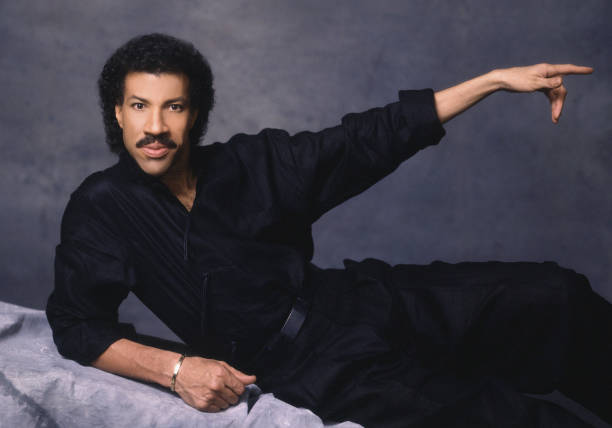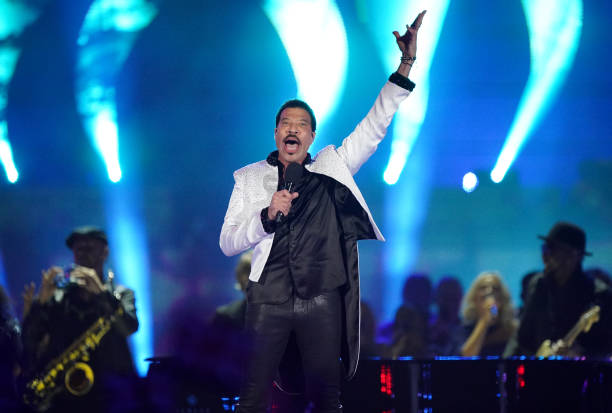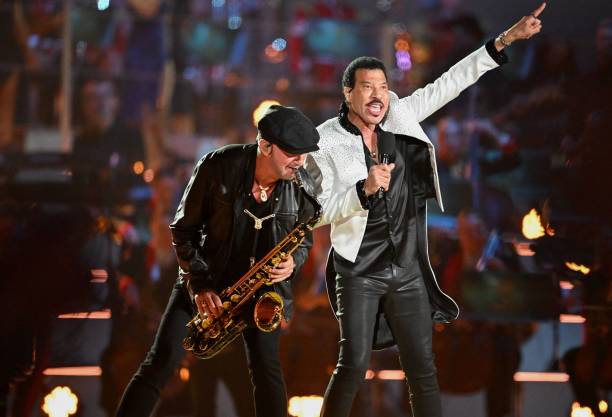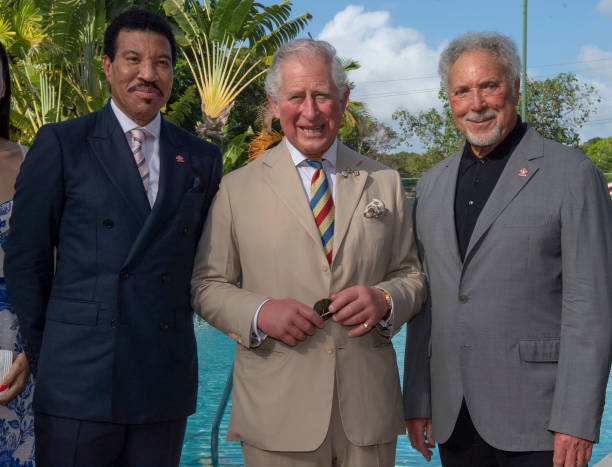The Soulful Maestro of Pop and R&B

Lionel Richie’s name is synonymous with timeless music, spanning genres from pop to R&B, and touching hearts across generations. With a career that began in the soulful era of the 1960s and continues to thrive today, Richie has become a global icon, renowned for his smooth voice, captivating performances, and songwriting prowess. His journey from Tuskegee, Alabama, to worldwide fame is a story of remarkable talent, perseverance, and a deep passion for music.
Born Lionel Brockman Richie Jr. on June 20, 1949, in Tuskegee, Alabama, Richie was immersed in a rich cultural and musical environment from a young age. Tuskegee is famously home to Tuskegee University, where Richie’s family had deep roots. His grandparents were friends of the renowned educator and civil rights leader Booker T. Washington, which instilled a sense of heritage and purpose in young Lionel. Growing up in this nurturing environment, Richie developed a love for music that would define his life.
 Richie's initial foray into music began at Tuskegee Institute, where he formed several R&B groups in the mid-1960s. His early exposure to the soulful sounds of the era, combined with his innate musical talent, set the stage for his future success. In 1968, he joined the Commodores, a funk and soul band that would become one of the most influential groups of the 1970s. As the lead singer and saxophonist, Richie’s smooth vocals and charismatic presence quickly became central to the band’s identity.
Richie's initial foray into music began at Tuskegee Institute, where he formed several R&B groups in the mid-1960s. His early exposure to the soulful sounds of the era, combined with his innate musical talent, set the stage for his future success. In 1968, he joined the Commodores, a funk and soul band that would become one of the most influential groups of the 1970s. As the lead singer and saxophonist, Richie’s smooth vocals and charismatic presence quickly became central to the band’s identity.
The Commodores achieved widespread success with hits like "Brick House," "Easy," and "Three Times a Lady," the latter two penned by Richie himself. His ability to craft songs that were both deeply emotional and broadly appealing became a hallmark of his career. The band's versatility, transitioning from funk-driven tracks to soulful ballads, showcased Richie’s expansive musical range and set the stage for his eventual solo career.
 In 1982, Richie embarked on a solo journey that would catapult him to even greater heights. His self-titled debut album featured hits like "Truly," which earned him his first Grammy Award for Best Male Pop Vocal Performance. Richie’s ability to blend pop sensibilities with soulful depth resonated with a wide audience, establishing him as a major solo artist.
In 1982, Richie embarked on a solo journey that would catapult him to even greater heights. His self-titled debut album featured hits like "Truly," which earned him his first Grammy Award for Best Male Pop Vocal Performance. Richie’s ability to blend pop sensibilities with soulful depth resonated with a wide audience, establishing him as a major solo artist.
Richie’s second solo album, "Can’t Slow Down" (1983), was a commercial juggernaut, selling over 20 million copies worldwide and earning him two Grammy Awards, including Album of the Year. The album featured iconic tracks like "All Night Long (All Night)," a jubilant anthem that showcased Richie’s knack for creating infectious melodies and cross-genre appeal. "Hello," another standout track, became a defining song of the 1980s, its heartfelt lyrics and memorable music video leaving an indelible mark on popular culture.
Throughout the 1980s, Richie continued to produce hit after hit, solidifying his status as a global superstar. Songs like "Stuck on You," "Penny Lover," and "Say You, Say Me" dominated the charts, further demonstrating his versatility and staying power. "Say You, Say Me," featured in the film "White Nights," won an Academy Award for Best Original Song, highlighting Richie’s prowess as a songwriter and his ability to connect with diverse audiences.
In addition to his solo success, Richie was a driving force behind the charity single "We Are the World" in 1985. Co-written with Michael Jackson and featuring an ensemble of the biggest names in music, the song raised millions for famine relief in Africa and became an enduring symbol of music’s power to effect change. Richie’s involvement in this project underscored his commitment to using his influence for humanitarian purposes.
The 1990s and early 2000s saw Richie continue to evolve as an artist, releasing albums that explored new musical directions while staying true to his roots. Albums like "Louder Than Words" (1996) and "Time" (1998) showcased his willingness to experiment with contemporary sounds, while maintaining the soulful essence that had defined his career.
In recent years, Richie has experienced a resurgence in popularity, fueled by his ongoing touring and his role as a judge on the television show "American Idol." His presence on the show has introduced him to a new generation of fans, reaffirming his status as a beloved figure in the music industry. Richie’s influence can be seen in the careers of countless artists who cite him as an inspiration, and his music continues to be a staple on radio and streaming platforms around the world.
Richie’s personal life has been marked by both triumphs and challenges. He has been open about his struggles with relationships and health issues, including throat surgery that temporarily sidelined his singing career. Through it all, Richie’s resilience and unwavering dedication to his craft have remained constants, enabling him to overcome obstacles and continue creating music that resonates with audiences of all ages.
Beyond his musical accomplishments, Richie is known for his philanthropic efforts and commitment to social causes. He has been involved in numerous charitable initiatives, including those focused on education, health, and disaster relief. Richie’s work with the Breast Cancer Research Foundation and his support for the Tuskegee University, among other causes, reflect his deep-rooted desire to give back to the community and make a positive impact on the world.
 As Lionel Richie continues to perform and record, his legacy as one of the most enduring and influential artists in music history is secure. His ability to craft songs that are both timeless and universal has earned him a place in the hearts of fans across the globe. Richie’s journey from Tuskegee to the world stage is a testament to the power of talent, perseverance, and an unwavering passion for music.
As Lionel Richie continues to perform and record, his legacy as one of the most enduring and influential artists in music history is secure. His ability to craft songs that are both timeless and universal has earned him a place in the hearts of fans across the globe. Richie’s journey from Tuskegee to the world stage is a testament to the power of talent, perseverance, and an unwavering passion for music.
In a career spanning over five decades, Lionel Richie has not only achieved monumental success but has also inspired countless artists and touched the lives of millions with his music. His story is one of innovation, resilience, and an enduring commitment to the art of songwriting. As long as there are songs to be sung and stories to be told, Lionel Richie’s influence will continue to shine brightly, a beacon of musical excellence and soulful artistry.
TOP
